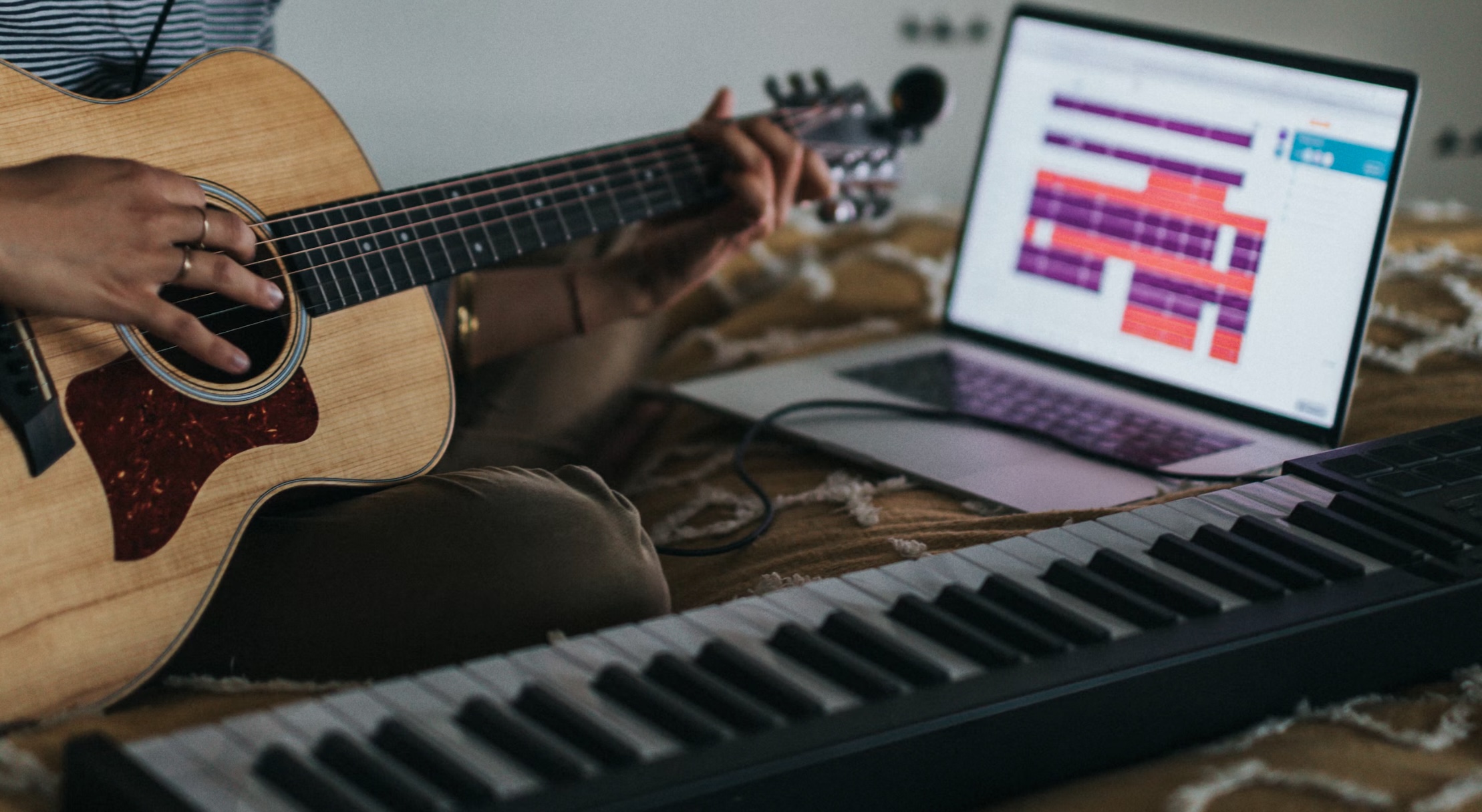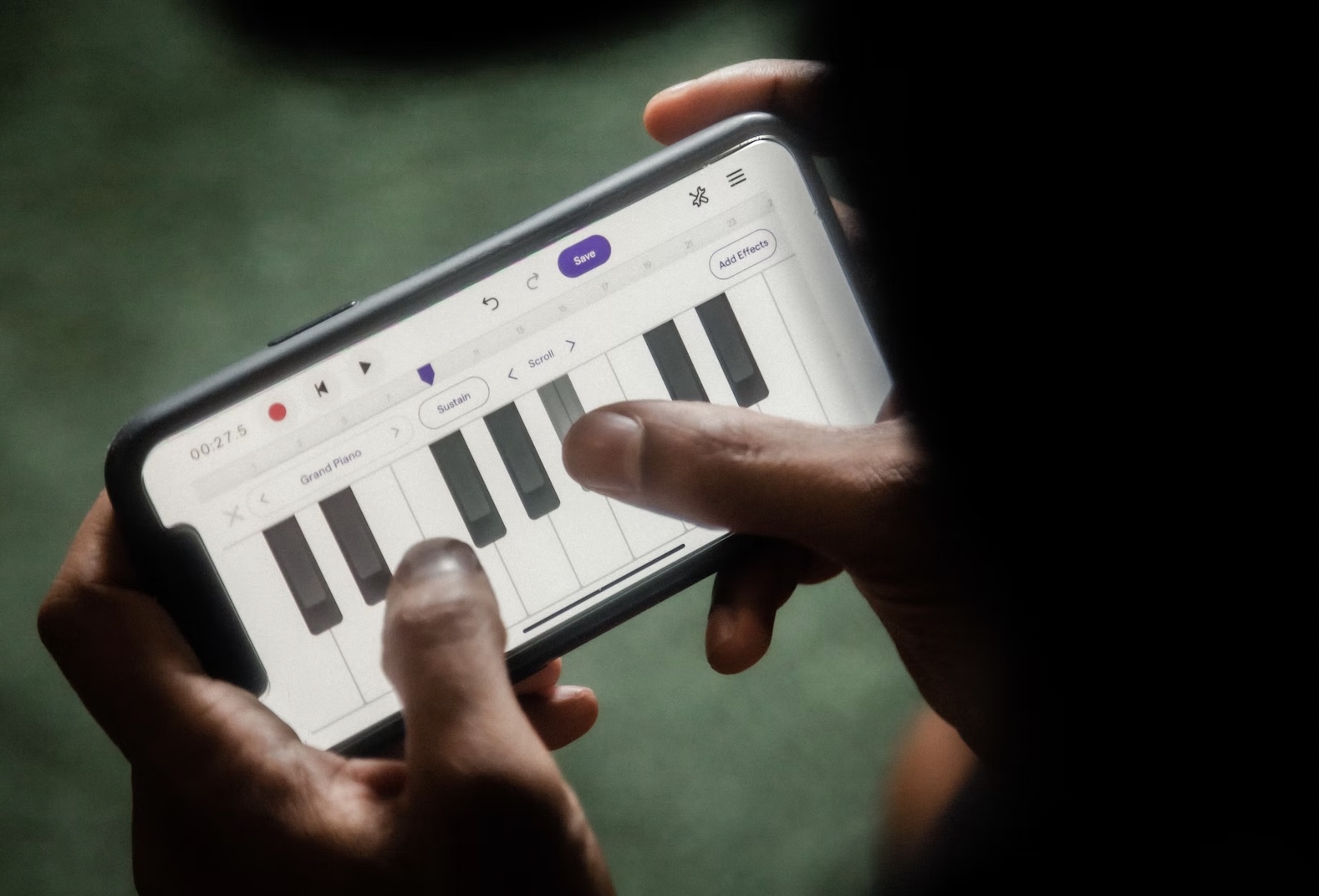Music has been part of school curriculums for centuries in many parts of the world. There is always likely to be a lot of debate about what kids are being taught. Music in schools is often up for debate.
While most of us agree on certain subjects being taught in school, such as Math, Science, and English, music lessons are more of a subject for debate. Some people think that the creative arts are not something we can do without. Other people think that music is superfluous. Their argument is that it is not essential for life and therefore not needed.
At Pianu, we believe in the benefits of learning music at a young age. In fact, we think that music in schools is essential. There are also a variety of different studies that back up this way of thinking. In this guide, we’re taking a complete look at music and piano lessons in school, weighing up the pros and the cons and whether the argument is as straightforward as we think it is.
Teaching Music in Schools is Easier Than Ever
We live in the age of technology. This means that teaching music in schools is far easier than it has ever been before. For instance, when you use the Pianu Academy, every student can log in individually. This means they can track their progress, and have personal, one-to-one feedback on their playing.
Every teacher will tell you how hard it can be teaching their subject. It is almost impossible to give every student the attention they need and deserve while you are in a lesson. Between the odd disruptive child, and the fact that there are many people in each lesson, it is not easy. This is why tools come in so handy.
Pianu allows students to learn at one workstation with a MIDI keyboard and a computer. It also means that they can log in from any computer in their own time. Students can watch lessons, and even practice without a keyboard with them by using the virtual keyboard that comes up on screen.
While it is great to have a trained and professional music teacher, they tend to be very stretched. This means that using any modern technology available can help.
If you are ready to take the plunge, get in touch with Pianu to see how we can help with your school music lessons, and make it easier for both students and teachers to get to grips with music.
The Argument Against Music in Schools
We know there will always be people who think we should not be teaching music in the school system. The argument is usually that there are not enough hours in the day. Basically, people think that certain things should be prioritized, such as Math, English, and Science.
It is true that students need a basic knowledge of the core subjects, but school is about more than that. Enrichment activities and those that give a well-rounded experience in education can make school more enjoyable, students more engaged, and even help with other subjects. We explain more about how this works in this post.
Other arguments against music in schools include:
It is an excuse for kids to mess around. Well, every subject can degenerate into that if kids are not engaged. Fortunately, music is one of the best subjects for keeping children engaged, especially if it is taught well.
The equipment is expensive. This isn’t necessarily true anymore, and piano lessons in school are a great example of this. You don’t need to spend huge amounts of money to support students. Affordable MIDI keyboards and computers make life much easier.
The Argument For Music in Schools
There are many different reasons why music in schools can be a positive thing. There are reasons why instruments are taught in schools, and why the subject is on the curriculum in so many countries. Forms of music lessons in schools can be dated back to the 1800s in the US.
In a study by the United States Department of Education, 94% of elementary schools were found to be offering some form of music education and lessons during their week. So, what are the arguments for keeping (and enhancing) school music programs?
Music is Shown to Help Language Development
One of many reasons why music is taught to younger students is the fact that studies show it to help with language development.
This study on language development between the ages of 2 and 9 shows that studying music and listening to music helps young people to understand sounds and even work out what words are being used. A lot of us remember singing songs in school as children, and this makes sense when you consider the studies.
Research shows that many forms of musical education assist the development of the left side of the brain. Areas of the brain that are used in processing and understanding language are improved by learning music. There are also suggestions from studies that children can link songs to information intake, helping things like new words stick in their brain.
It makes sense, melodies are memorable and enjoyable to listen to. A lot of us remember songs from when we were kids. We sing nursery rhymes when we’re young, or our parents may sing to us. On top of that, at school and pre-school, singing and learning about music can play a big part in the education we enjoy.
You only have to look at some of the huge kid-themed hit songs to know that children tend to really latch on to music. Baby Shark was everywhere for a long time, and kids clearly got a lot out of listening to it, even if it did start to annoy some of the adults.
Music Teaches Collaboration and Communication
Music can be a wonderful tool when it comes to working together and communicating. Even the most basic melodies and music can encourage people to work together.
When you are all singing the same song together, you have to communicate properly and stay in time as well as in tune with one another. If you start playing instruments then this is an even better example, and if kids reach the stage where they are writing songs together, this can lead to even more close collaboration.
Another of the reasons that music has been taught so closely within schools is that it is a great way to start students working together. Perhaps it is as simple as somebody playing a tambourine while the rest of the class sings a song, but this can teach rhythm and staying in time.
If you have spent any time in bands or playing music with other people you will understand exactly what it can do for you. Music connects you socially. Whether you are a fan who goes to gigs, or a musician, you will know this to be true. For young people, it can be a way to bond, too. You can support that bonding and help children with their social life. There is no denying that the social side of music is an exciting benefit.
Music Helps With Math
When people argue that music should be sacrificed to make room for more math and science, this is your comeback. Studies show that music helps with math. When you are learning an instrument such as piano, you are using parts of the brain that help with mathematics. Also, you’ll find a lot of math ingrained in music.
Brain Balance explained the relationship between music and math perfectly. “Learning music improves math skills because, at some level, all music is math. It’s about time signatures, beats per minute and formulaic progressions. Performing music, therefore, reinforces parts of the brain used when doing math.”
If you know a little about music you will know that learning can be helpful practically. We have to work out some ratios such as beats per minute. We also have to understand bars, beats, and measures, which involves mathematics. Even at a very basic level, music can help with counting as students have to understand how to count beats and then bars.
There is a study in the Journal of Educational Psychology which shows that both math and science are boosted by music.
It May Also Help With Science…
There were over 112,000 student records studied and 13% of the students had participated in at least one music course in grade 10, 11 or 12. The courses they had taken part in included concert band, conservatory piano, orchestra, jazz band, concert choir and vocal jazz.
The studies findings can be summed up below:
“Students who participated in music, who had higher achievement in music, and who were highly engaged in music had higher exam scores across all subjects, while these associations were more pronounced for those who took instrumental music rather than vocal music,” he said. “On average, the children who learned to play a musical instrument for many years, and were now playing in high school band and orchestra, were the equivalent of about one academic year ahead of their peers with regard to their English, mathematics and science skills, as measured by their exam grades.”
A summary of the study summarized that students who had been involved with music lessons had developed their team skills, discipline, and even their cognitive abilities and self-efficacy.
The World Needs Musicians
One of the reasons music should be taught in schools is simple. We value musicians. Throughout the history of society, a lot of musicians were put on a pedestal for their abilities. You will see examples of Mozart and Beethoven as some of the best artistic offerings of humankind.
The music industry is also huge, estimated to be worth $25.9 billion globally. If you have a child who is passionate about music, you will want to help them to foster this enthusiasm and become as good as they can be. It may even end up being their career.
Ask the world’s best musicians when they started playing. They will all tell you that they started very young. This is one of the reasons why we should encourage music in schools. Those incredible concert pianists we pay to go and see, and the bands whose music we buy. The chances are, they started their musical interest in school.
Music Can Help Mental Health
You may know that there have been many studies in this field. Anecdotally, you may know from experience that music can help with your mental health.
This is true for a few reasons, backed up by many studies. In fact, you can benefit from just listening to music in many scenarios, which can help with anxiety and depression.
How Music Helps Mental Health:
Music can help your sense of self-worth and achievement. For example, if a young person starts to learn piano. When they reach a new milestone and can play a full song, for instance. This comes with a sense of achievement and pride. This can help you to gain more of a sense of self worth and achievement, boosting your health.
Music can distract people from their problems and stresses. Distraction can only ever be part of the process of curing, but it is important. Consider the times when you have been anxious or down. Overthinking can be one of the main issues, and a way to keep your brain occupied with something constructive is a great help. Learning an instrument can be perfect for this. Many schools have also embraced techniques such as music therapy for their students.
Music is a form of expression. One of the ways in which humans communicate and process problems is to share them. Playing music is one of the best ways to do this. Whether it is playing guitar, learning piano, or even just singing along to your favorite songs.
Music can help young people work out who they are. Michael Viega, PhD, a professor of music therapy at Montclair State University in Montclair, New Jersey, studied this in detail. The studies showed that children can work out who they are and what the identify as by listening to music. The same applies to playing music, too.
Music is Unique Exercise For Your Brain
This TedEd video shows the incredible impact of playing an instrument on your brain. Studies have even scanned brain activity while musicians were playing, to see which areas of their mind were being exercised and grown.
New connections can be built within the brain. According to TedEd, “playing music is the brain’s equivalent of a full-body workout”.
The video explains how playing music can help to bridge left and right brain. Very few activities help us with this! It means that by playing an instrument, you could be boosting all sorts of abilities in your mind, including your problem-solving capabilities.
Kids Enjoy It
One of the reasons why we should encourage music in schools is that it is fun. There is room in the curriculum (or at least, there should be) for creative and exploratory fun.
Children can benefit from a stress-free space to explore. Instruments are a great way to provide them with this. School should not always be a chore. Kids need to be kept engaged and having lessons they love (like music) is fantastic for this.
In School or After School Music Lessons?
Many schools offer music as an extra-curricular activity. So, should music lessons be in school or after school?
Well, having explored how music lessons such as piano lessons can help with motor skills and language development, it makes sense that schools include music for their youngest children. As soon as kids are in elementary school, studies suggest some sort of music education is crucial.
It makes sense that basic musical education is offered all through school years, and when pupils eventually get the chance to choose, they can even go on to study music at college. There are specific music schools and Universities around the world with an amazing reputation for music.
In essence, piano lessons and the fundamentals of music are a fantastic thing to offer at all levels of education. The fact that technology tools and courses like Pianu’s academy make it so much easier also mean that schools have a lot of the burden taken away from them.
During lunch times or after school, it can also be great to offer specific instrument lessons, band practices, and more in the way of music education.
How Music Can Be Incorporated Into School
The number one way is through organized lessons every single week. Music should be part of the timetable and a way for young people to learn and enhance their brain capacities. Now that you have seen all of the benefits of music in schools, why wouldn’t you take advantage?
Regular music lessons are the minimum that we should expect, but there are some additional ways that schools can incorporate music. It is a good idea to encourage those who are passionate about music in every way possible.
Ideas of How Schools Can Incorporate Music:
- Putting on shows. One of the greatest ways that music can be encouraged in schools is through shows. You can also include the other arts in this, and give students a chance to show their creativity. A show can involve writing by the students, acting (of course) and music. Children can also learn other skills such as organization as they are given responsibility. The audience can be parents and family as well as other students.
- Offering rehearsal rooms. If a school has space for students to practice, why not let them use it after school? A system to let aspiring musicians use the space for their lessons and playing their own music is often a good idea.
- Connecting music teachers and instrument teachers. If students are interested and have their own passion for music, you could potentially
What About Listening to Music in School?
There is some debate on whether or not children should be allowed to listen to music in school. For instance, they may wish to put headphones on while they study.
Headphones aren’t very conducive to a classroom environment. These should usually be reserved for private spells of study. However, if you’re worried that music might distract people from what they should be doing, you might want to think again.
A study in 2007 showed that listening to music can actually help people to retain information, making it a very useful tool for private studies. However, it really isn’t great for the classroom unless you are specifically studying music.
For one, the type of music that will help most varies hugely from one person to the next. Music with lyrics is almost never helpful. Some students benefit from classical music, while others will benefit from dance music, ambient music, and other genres. The personal relationship with music means it isn’t usually a good idea for workplaces or classrooms with multiple students.
Summary – Why Music in Schools Should Be Protected
As you can see, the studies are overwhelmingly in favor of music being a part of studies in school. Even with music lessons incorporated into the week, there is plenty of time for core subjects. Plus, music can even help with things like mathematics and science. This is all the more reason to support students who are interested in music.
There is a reason why the vast majority of schools in the US (and elsewhere) offer music as part of the curriculum. It is proven to be great for the development and mental health of students.
If you want to take advantage of Pianu to make it easier for students to learn music in schools, then contact us today about our educational packages, making it much easier for students to learn how to play piano. We can support young people with their piano hobby both in school and in their own time outside of school.













